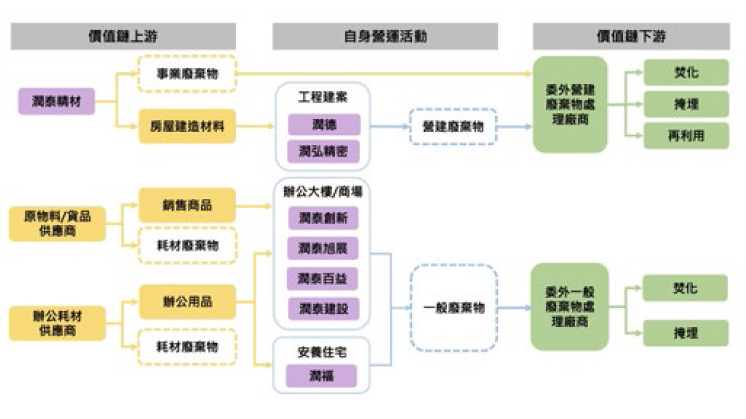According to the operational modes of different industries, various types of waste are generated. Ruentex Development’s operations produce general domestic waste from office buildings and malls, as well as industrial construction waste from construction sites. Construction waste includes materials generated during the building and demolition of structures, such as concrete, bricks, wood, rebar, and other construction materials like lime, sand, and cement. The large amount of waste not only occupies land resources, but the wastewater and air pollution generated during disposal can also negatively impact the environment. Additionally, handling and transporting construction waste consumes significant energy and resources, with associated costs potentially being passed on to the cost of the building, indirectly affecting consumer purchasing decisions.
All waste generated by the company’s operations is outsourced to qualified contractors for disposal. Industrial waste is handled in accordance with the Environmental Protection Agency’s (EPA) “Industrial Waste Disposal Plan Review and Management Measures,” requiring the submission of an industrial waste disposal plan and the declaration of waste disposal and the tracking of surplus soil and gravel from construction projects.
For construction sites within the construction industry, the amount of waste generated varies depending on the construction methods used, requiring different disposal methods. We continuously strive to recycle and reuse as much waste as possible to minimize its negative environmental impact. For department store service industry locations, due to their simpler operational model with mainly general household waste and food waste, we will actively promote waste classification systems and strengthen waste sorting management among employees and customers to effectively manage waste generation growth.
Waste management systems and process diagrams.

